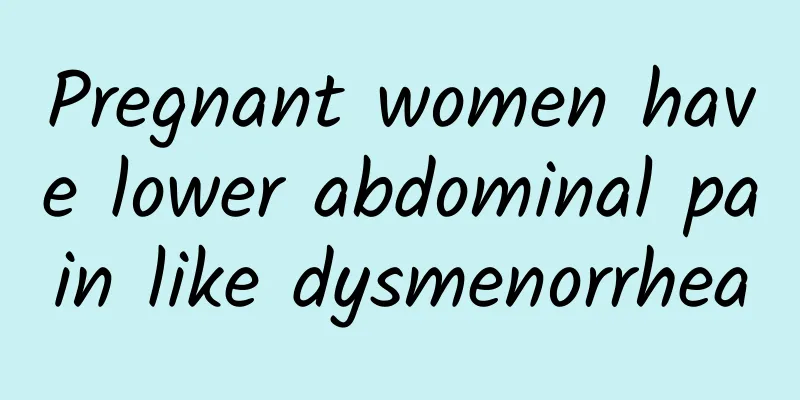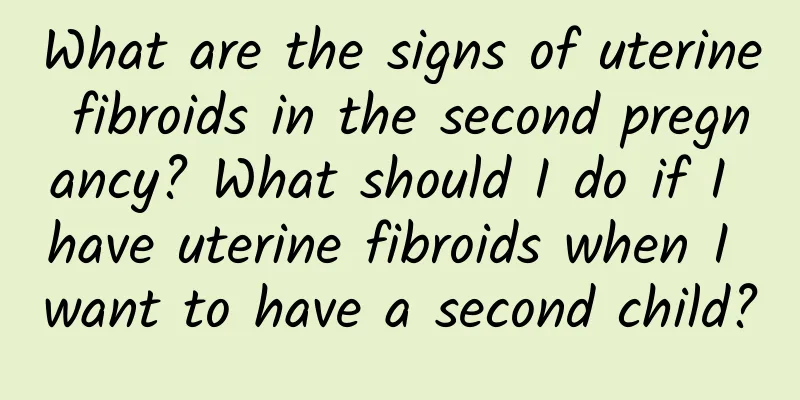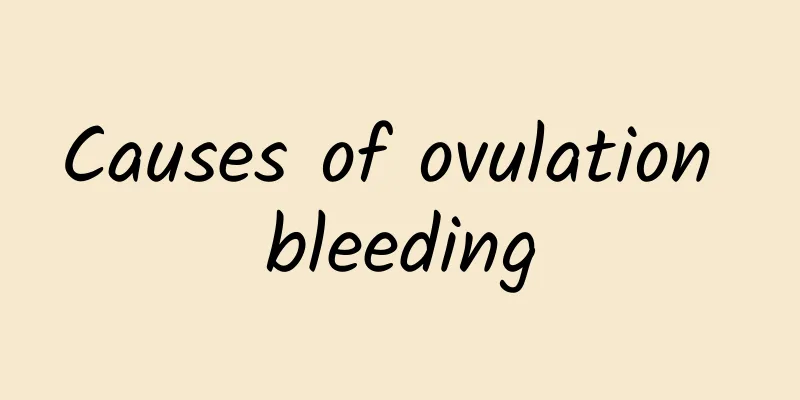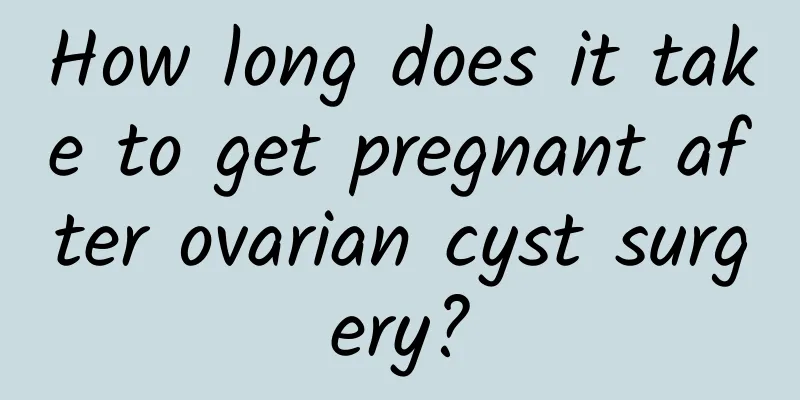Pregnant women have lower abdominal pain like dysmenorrhea

|
Lower abdominal pain usually refers to pain in the lower abdomen. Lower abdominal pain in pregnant women is like dysmenorrhea. It may be cramps caused by cold, or it may be related to pelvic inflammation. Some pregnant women have lower abdominal pain as a symptom of threatened abortion or threatened premature birth. Some patients also have ovarian cyst torsion or rupture, resulting in abnormal bleeding. Lower abdominal pain should be alert to ectopic pregnancy, so you need to see a doctor for active examination. Some patients need to keep warm, be hospitalized for fetal preservation treatment, etc. Some patients need surgical treatment as soon as possible. 1. Cramps and pains caused by cold: When pregnant women catch a cold, the smooth muscles in the pelvis, including the uterus and surrounding smooth muscles, may contract and spasm. Some may have obvious dysmenorrhea-like symptoms, with lower abdominal pain like dysmenorrhea. Pregnant women need to keep warm and drink plenty of hot water to help relieve symptoms. 2. Pelvic inflammation: Women with pelvic inflammation will experience pelvic congestion due to increased uterine size or changes in hormone levels after pregnancy, which may aggravate the symptoms of lower abdominal pain, which may be as painful as dysmenorrhea. In this case, if the B-ultrasound is normal, the main thing is to keep warm, rest, pay attention to decompression, and improve your immunity. If you are preparing for an abortion, you must actively treat the infection first. Usually, cefuroxime axetil tablets, levofloxacin capsules, and metronidazole tablets are selected. 3. Threatened abortion or threatened premature birth: Paroxysmal lower abdominal pain is like dysmenorrhea, which may also be a symptom of threatened abortion or threatened premature birth. You need to go to the hospital to let the doctor check the uterine contraction. If necessary, you need to be hospitalized for fetal preservation treatment. Usually, the choices are magnesium sulfate injection, progesterone injection, nifedipine sustained-release tablets, etc. 4. Ovarian cysts: Some women may be diagnosed with ovarian cysts during pregnancy. Some ovarian cysts may suddenly twist or rupture, causing lower abdominal pain similar to dysmenorrhea. Treatment should be based on the specific disease, and surgical treatment should be chosen as soon as possible if necessary. 5. Ectopic pregnancy: Patients with ectopic pregnancy may also experience lower abdominal pain, similar to dysmenorrhea. Therefore, if there is abnormal bleeding and obvious abdominal pain after pregnancy, you need to actively seek medical attention and examination. Some patients need emergency laparotomy. |
<<: What does threatened miscarriage mean?
>>: Is postmenopausal bleeding definitely cancerous?
Recommend
How long after pregnancy is it safer to have an abortion
Abortion surgery has certain health risks, and th...
How to treat moderate cervical erosion
How to treat moderate cervical erosion? Cervical ...
Lara Leung refused to lose weight but ended up losing weight?
Lara Leung, 25, has been in the industry for 8 ye...
How long does menopause usually last?
The duration of menopause varies from 1 to 3 year...
When will menstruation come after abortion? How many days will menstruation come after abortion?
When will menstruation come after an abortion? Th...
Why does uterine fibroids delay menstruation? What should I do if uterine fibroids delay menstruation?
Why does uterine fibroids delay menstruation? Wha...
What are the symptoms of posterior uterine wall adenomyosis? Is posterior uterine wall adenomyosis serious?
What are the symptoms of posterior uterine wall a...
Two aspects of TCM etiology of senile vaginitis
Senile vaginitis belongs to the category of "...
Experts on preventing irregular menstruation give you tips
Irregular menstruation is also a common gynecolog...
Combined with the examination of vaginitis, the patient's condition can be discovered in time
Vaginitis is not unfamiliar to women. It is a ver...
What is obesity caused by uterine fibroids? Is uterine fibroids caused by obesity?
What is obesity caused by uterine fibroids? Is ut...
To reduce sugar and lose weight, you just need to cut out starch and eat more meat? Famous doctors help you debunk 10 myths about sugar-reducing diets
Many people try various weight loss methods, but ...
Symptoms of uterine fibroids: 4 self-examination methods to help you understand your body
For female friends, uterine fibroids are a relati...
Expert introduction: Early treatment of irregular menstruation
Patients with menstrual disorders should know tha...
How long does it take for a medical abortion to react? Everyone has a different reaction time.
Medical abortion is relatively fast and will have...









